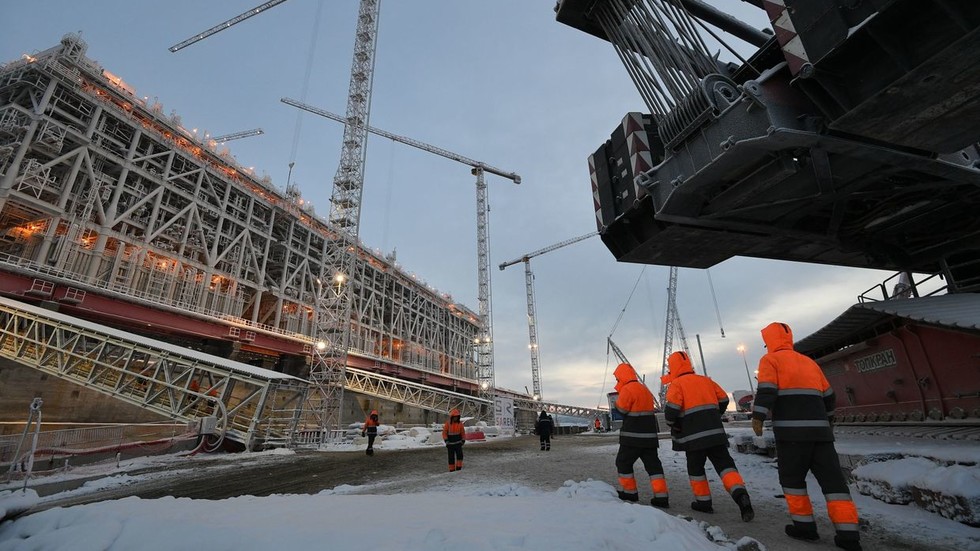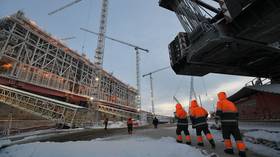
Tokyo plans to retain stakes in major energy projects in the sanctioned country

Production sites of the Arctic LNG-2 project, Murmansk region, Russia, November 11, 2021. © Sputnik / Maksim Blinov
Japan will soon benefit from its decision to retain stakes in Russian oil and gas projects despite joining Western sanctions on Moscow over the conflict in Ukraine, the Russian consul general in the city of Sapporo told RIA Novosti news agency on Tuesday.
Sergey Marin said Tokyo may gain an additional 2 million tons of Russian liquefied natural gas (LNG) per year once the Arctic LNG 2 project in Russia’s Far East is launched. While Japanese firms froze new investment in March 2022 as part of sanctions, they have not withdrawn from the venture.
“A consortium made up of Mitsui & Co. and Japan’s national oil and metals company JOGMEC has retained a 10% stake in Novatek’s Arctic LNG 2 project… The project is working, but has not yet started production of LNG. The first production line should be launched by the end of this year, and the second and third in 2024 and 2026. If everything goes according to plan, Japan will add about 2 million more tons of LNG per year to the share it now receives from Russia,” Marin said.
The diplomat noted that Tokyo has also retained stakes in another oil and gas project in Russia’s Far East, Sakhalin-2, which passed to a new domestic operator last year. He added that a number of Japanese energy providers have so also signed contracts with the new operator, Sakhalin Energy. The project provides Japan with about 9% of its total LNG imports and 3% of its power supply.
Japan’s Sakhalin Oil and Gas Development Co (SODECO) also owns a 30% stake in Russia’s Sakhalin-1 offshore oil and gas project.
READ MORE: Japan needs Russian energy – PM
Tokyo has joined Western sanctions on Moscow since the start of the conflict in Ukraine last year, including enforcement of a price ceiling on Russian oil imports. However, Japan received an exemption from Washington, excluding supplies from Sakhalin-2 from the cap, and kept stakes in its joint energy projects in Russia, arguing that they are crucial for the country’s energy security.
For more stories on economy & finance visit RT’s business section




